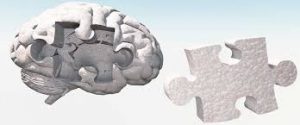 September 2020
September 2020
Those failing to remember the past will repeat efforts, and make mistakes, at considerable cost.
Institutional memory is the collective set of facts, concepts, experiences and knowledge held by a group of people. Condo corporations lose their institutional memory when directors, management and employees change without passing on what they’ve learned. The best communities retain these memories by maintaining a comprehensive system of records and the ability to search them.
Condo communities generate a volume of communication and documentation unmanageable with paper-based systems. These communications are a comprehensive history of everything taking place in a community. Nicholas Gill of BuildingLink condo management software explains the importance of record keeping and easy access to relevant information. “When management or the board are dealing with an issue beyond their current memory the typical response is to treat it like something that has never happened. Discussions, engineering or legal reports, and inspections may be unnecessary if only historical records were accessible.”
Current directors, management and residents will always have a need for information beyond their ability to recall or personal knowledge. To the extent this information has been retained in paper form, it is usually impractical to obtain when needed.
Institutional memory is only as good as the record keeping capabilities of the corporation
Institutional memory is only as good as the record keeping capabilities of the corporation. Records that should be retained indefinitely for effective decision making are more extensive than what is required by law. They include:
- Management notices to residents
- Resident communications to management and responses
- Notices pertaining to maintenance and repairs
- Meeting minutes
- Financial records of all types
- Building plans, unit layouts
- Legal opinions and engineering reports
- Information on all capital projects, renovations, repairs and upgrades
“Without institutional memory, in the form of historical records, condo directors and management have no understanding of their building’s history” explains Mr. Gill. “They lack necessary information to avoid repeating past mistakes and wasting money. It becomes impossible to understand which problems need to be addressed in the future.”
Problems seemingly new are not new. Many of the more common problems – water, noise, leaks, odours – have been looked at in the past. There may have been recommendations on how to resolve them. Without access to these records, knowledge is lost. Current directors and management will have no knowledge of these problems nor will they know where to look for this information.
Problems in one unit are likely to recur, at one time or another, in other units within a building. Once a report has been provided for the first unit, access to this report even a decade later provides faster resolution without the cost of another report. Magnify this among hundreds of units in a high-rise community and savings are substantial. While it would be unreasonable to expect a current board or management to be aware of any problem occurring a decade earlier, access to records could identify a solution in minutes.
Digital records technology is an economical and effective way to maintain institutional memory. Digital systems offer clarity by providing easy access to records stored in digital form. Such clarity would otherwise be unavailable to those who rely on paper-based systems.
Digitization of condo community communications and records is one of the many benefits of condo management software. Used effectively, it provides an easy way to digitize, store, access and distribute information, communications and records.
Those failing to remember the past are assuredly going to waste money.







